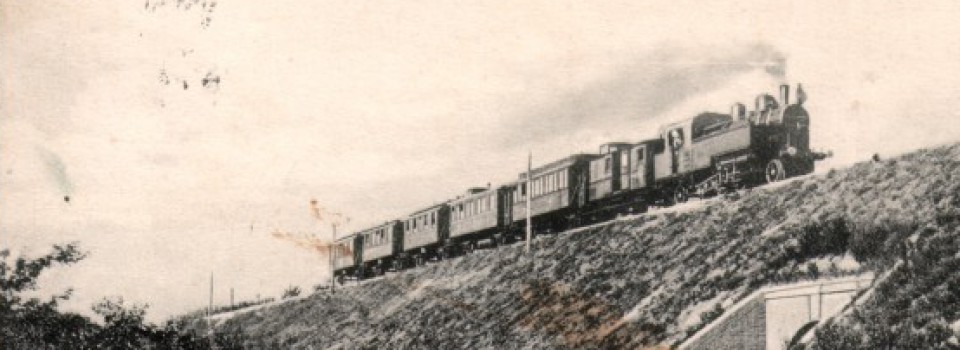Szilveszter Matuska, who became known as the train killer of Biatorbágy, was born in Čantavir on 29th January 1892. He had been enrolled in I/b form of the Jesuit grammar school in Kalocsa. Because of his poor school progress, he was later transferred to the grammar school in Subotica. Here he decided to be a village schoolmaster and cantor, so he continued his studies in the archiepiscopal teachers training school in Kalocsa. After graduation, he was appointed as a teacher to three different places, but Szilveszter Matuska chose the appointment in Püspökhatvan. After his military service, he returned to his native village during World War I, where he took up teachership and he organised civil guard there. The teachers wage was not sufficient for his debauched lifestyle, so he also dealt with trade, importing huge quantities of salt, petroleum, sugar, matches and paint, from Novi Sad, Subotica, Belgrade and Bulgaria. In June 1922, he received Hungarian citizenship and moved to Budapest to Rottenbiller Street, together with his family. He sold his estate and bought another houses in the Visegárd Street, and then in the Szabolcs Street, but he also wanted to buy several houses in Vienna, from the price of his flat sold in Budapest. He also dealt with wine-trade, trying to sell a sweet kadarka called “Tigris tej” (Tigerns Milk). While he lived in Vienna, he also occupied with selling his own patents. He finally settled in Vienna in May 1928. He committed his crime in Biatorbágy in the night between 12th and 13th September 1931, at 0:20 a.m. Blowing up a portion of the viaduct caused the engine and the first six coaches forming the train to plunge into a ravine. 22 people died and 17 others were severely injured in this tragedy. They could find the home-made explosive and a letter that made the communists suspected. Because of this, it way introduced a summary court until October 1932. However, during the investigation it was revealed that a mad merchant and industrialist from Vienna, Szilveszter Matuska committed the crime; and he was also the perpetrator of another crime of derailing a train between Austria and Germany. The Austrian court sentenced him to six years of imprisonment, while the Hungarian court condemned him to death. But since there was no penalty of death in Austria, the sentence was commuted to life imprisonment in the National Royal Prison in Vác. In November 1944, when the Soviet troops marched in Vác, the prison remained ownerless for a few hours, thus Szilveszter Matuska escaped in this disorder and disappeared. He was last seen in his native village, Čantavir.
Árpád Papp
Literature:
Bozsik, Péter (2005): Az attentátor. Kalligram Kiadó, Budapest.




